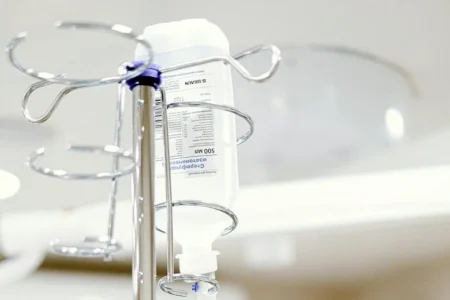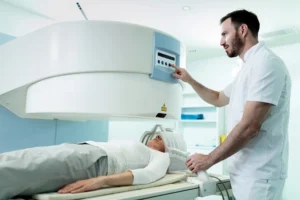The Evolving Landscape of Nursing: Skills, Challenges, and Future Directions
- Updated on: Jan 4, 2025
- 4 min Read
- Published on Jan 4, 2024

The field of nursing has undergone significant transformation over the past few decades, evolving into a complex and multifaceted profession. Today’s nurses are not just caregivers but are integral parts of the healthcare system, playing crucial roles in patient care, administration, and even in policy making. This article delves into the changing landscape of nursing, examining essential skills, current challenges, and the anticipated future of this vital profession.
Historical Overview of Nursing
Nursing’s journey from ancient times to the present day reflects a remarkable evolution. As we know it, the profession began taking shape with pioneers like Florence Nightingale, who introduced sanitary conditions in war hospitals. The 20th century saw significant developments in nursing education and practice, establishing standardized training and regulatory bodies.
Post-World Wars, nurses began assuming more responsibilities in various healthcare settings. The advent of specializations in the late 20th century allowed nurses to focus on specific fields such as pediatrics, oncology, and critical care. Technological advancements have continuously reshaped nursing practices, emphasizing the importance of adapting to new tools and methodologies. Today, nursing stands as a dynamic and essential component of the healthcare system, influenced by its rich history and ongoing developments.
Essential Skills for Today’s Nurses
Modern nursing demands a diverse skill set to navigate the complexities of healthcare. Communication stands paramount, bridging the gap between doctors, patients, and families. Nurses must exhibit critical thinking and decision-making abilities, especially in high-pressure situations. Emotional intelligence and empathy are crucial for providing compassionate care. Technological proficiency has become indispensable, requiring nurses to be adept with electronic health records and advanced medical equipment. Leadership and teamwork skills are also essential, as nurses often coordinate with various healthcare professionals. Continuous learning and adaptability are necessary to keep pace with the evolving medical field, including training in specialized areas.
Advanced Nursing Specializations
The nursing field offers a wide range of specializations, enabling nurses to concentrate on specific areas of interest and expertise. Specialties such as pediatric, geriatric, and critical care nursing require distinct skills tailored to unique patient groups. Nurse practitioners (NPs) have expanded roles, including diagnosing and treating illnesses, prescribing medications, and performing certain procedures. Specializations like nurse anesthetists and nurse midwives demonstrate the high level of practice and autonomy nurses can achieve. To excel in these roles, ongoing education and additional certifications, such as in advanced life support, are essential. These specializations enhance patient care and provide nurses with opportunities for career growth and satisfaction. The demand for specialized nurses is on the rise, mirroring the growing complexity of healthcare needs.
Technology Integration in Nursing
The integration of technology into nursing has dramatically transformed patient care and healthcare management. Electronic health records (EHRs) are now standard, enhancing the efficiency and accuracy of managing patient data. Telehealth has become increasingly important, offering remote care options, especially in rural areas or during health crises like the COVID-19 pandemic. Wearable health devices and mobile health apps are becoming essential tools for patient monitoring, providing real-time data.
Nurses are required to be proficient with advanced medical equipment, from smart IV pumps to robotic surgical tools. The emergence of artificial intelligence and machine learning in healthcare is starting to influence nursing practice, aiding in diagnostic processes and healthcare administration. The ongoing evolution of technology in healthcare necessitates continual training for nurses, ensuring they are adept at using new digital tools and managing data effectively.
Addressing Burnout and Mental Health
Burnout, characterized by emotional exhaustion and decreased job satisfaction, is an increasingly prevalent issue among nurses. Contributing factors include long hours, high-stress environments, and emotional demands of patient care. Burnout affects nurses’ mental health and the quality of care they provide. Healthcare institutions are implementing strategies to address this, such as ensuring adequate staffing, providing support services, and promoting wellness programs.
Techniques like mindfulness and stress management are becoming integral in nursing culture. Peer support and mentoring can also help mitigate the effects of work-related stress. Promoting open discussions about mental health and offering resources for coping are essential in fostering a healthier work environment for nurses.
The Role of Continuing Education
Continuing education is fundamental in nursing, ensuring that nurses remain abreast of the latest medical science and practice developments. This encompasses a range from new medical procedures and drug therapies to emerging patient care technologies. Specialized training courses, such as or advanced life support or phlebotomy, are critical for broadening and updating nurses’ skills.
Healthcare institutions often encourage or require their nursing staff to participate in workshops, seminars, and conferences as part of their professional development. The rise of online learning platforms and simulation-based training offers nurses flexible and interactive educational opportunities. Such continuous learning equips nurses with new skills and reinforces their commitment to ethical and compassionate patient care. Lifelong learning is integral to nursing, directly impacting the quality and efficacy of patient care.
Future Trends in Nursing
The future of nursing is shaping up to be dynamic and driven by technological advancements, with a strong focus on personalized patient care. Developments in genomics and personalized medicine are likely to require nurses to gain specialized knowledge in genetics and individualized treatment plans. The shift towards preventive care and public health will expand nurses’ roles beyond traditional clinical settings into community health education and policy advocacy.
The increasing integration of artificial intelligence and machine learning in healthcare is set to transform nursing practices, aiding in diagnostic processes and patient monitoring. Telehealth and remote monitoring technologies will enable nurses to provide care in more diverse environments, including home settings. The emphasis on interprofessional education and collaborative practice will see nurses working more closely with a team of diverse healthcare professionals. As the healthcare landscape evolves, nurses will continue to be pivotal in shaping and delivering future healthcare services.
The nursing profession is at a crossroads of tradition and innovation. As we have explored, the landscape of nursing is constantly evolving, driven by technological advancements, the expansion of roles and specializations, and the ever-present need to address challenges like burnout and the necessity for continuous education.
Nurses today are not just healthcare providers but are pivotal in shaping the future of healthcare itself. Their ability to adapt, learn, and grow is more critical than ever. As the backbone of the healthcare system, nurses will continue to play an essential role in meeting society’s complex and changing healthcare needs.












